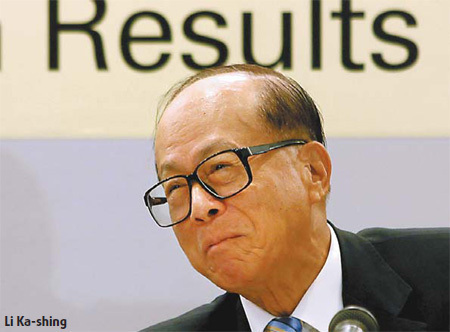BizChina
- Details
- Hits: 1104
Rich Brubaker over at All Roads Lead to China did a post recently, entitled, "5 Characteristics of Successful Companies in China." The post sets out the following five things successful companies do in China:
1. Define their China market. The successful company spends time figuring out what its market will be in China, both geographically and socioeconomically.
2. Develop a "plan of attack" in-house. According to Rich, the first layer of the plan will "focus on company structure (onshore vs. offshore), operations (domestic vs. export), networks (inside sales vs. agents), and commitment (investment vs. outsource), and will create a path for executives to take as the firms begins to grow."
3. Bring in the right people.
4. Leverage successful pilot programs. Successful companies do not roll out a six city platform from day one.
5. Not be afraid to start over. "There are no deals of the century and I have never heard of a case where a souring JV [Joint Venture] agreement was made better by giving the partner more money. China is a place where fortunes are lost far more often than they are won, and for firms who hang on rather than execute a new strategy, lost fortunes are far more likely."
One of the things that I love about being a lawyer is that it gives me a birds eye view of a large number of companies and their operations. From my perspective, everything Rich says above is absolutely true, but in some respects, it is even less complicated than he makes it. Admitting hindsight is 20-20, I "feel" as though I am virtually always correct in predicting which of our clients will succeed in China and which will not and those who succeed typically can be described as knowing their business and wanting to do things right in China at the right price from the very beginning, while recognizing that China is not Kansas. Our clients who fail to succeed in China go into China planning to cut corners from day one and, almost invariably, they hire and overpay an unqualified local (see Rich's #4 above) to run their China business with too little monitoring.
What do you think?
- Details
- By Chinadaily.com.cn
- Hits: 1034
 Cheung Kong (Holdings) Ltd Chairman Li Ka-shing, Hong Kong's richest man, is buying more shares in the property developer, the worst-performing stock this year among the city's five biggest real-estate companies.
Cheung Kong (Holdings) Ltd Chairman Li Ka-shing, Hong Kong's richest man, is buying more shares in the property developer, the worst-performing stock this year among the city's five biggest real-estate companies.
Li paid HK$424 million for 4.39 million shares, about HK$96.50 each, on Nov 24, the biggest of eight purchases this month, according to the Hong Kong stock exchange data. He now owns a 40.9 percent stake, the data showed. Cheung Kong fell 0.7 percent to HK$97.8 at noon in Hong Kong yesterday.
The benchmark Hang Seng Property Index has surged 64 percent this year, compared with a 35 percent gain in Cheung Kong, as record low interest rates and the rebounding local economy lifted housing prices.
The stock's underperformance is "a good buying opportunity" for Li, according to Raymond Ngai, an analyst at JPMorgan Chase & Co.
"Cheung Kong's property business is doing fine," said Ngai, who rates the company's shares "neutral". Cheung Kong has failed to match gains in other local developers because of concerns about unit Hutchison Whampoa Ltd, Ngai said.
- Details
- By David Cao
- Hits: 976
China would launch a review of the anti-dumping measures against chloroform imports from the European Union, the Republic of Korea (ROK) and the United States on Monday.
The Ministry of Commerce (MOC) announced the decision on its website Sunday one day before the measures were due to be ended, after it received applications for reviewing the measures from two Chinese chemical enterprises representing the Chinese chloroform producers.
The measures against Indian chloroform would be terminated on Monday as no applications were filed, the MOC said in the statement.
China started to levy tariffs of 32 percent to 96 percent on chloroform imported from the four places for five years on Nov. 30, 2004, after finding the imports caused essential damages against domestic industry.
The review would normally be ended by Dec. 30, 2010, before which the duties would remain in place.
- Details
- By David Cao
- Hits: 921
Environment-related stocks rose in morning trade Friday on China's firm target to curb greenhouse gas emissions, despite an overall drop at the two main stock exchanges.
The sector rose 0.93 percent on average as of 11:30 a.m., while the benchmark Shanghai Composite Index lost 1.05 percent to 3,137.65 points and the Shenzhen Component Index slid 1.25 percent to 13,121.24 points.
Fujian Longking Co., a manufacturer of electro filter equipment and flue gas desulfurization equipment, gained 7.18 percent to 31.65 yuan (4.65 U.S. dollars). FeiDa Group Co., producer of air and water cleaning equipment in Zhejiang Province, rose by the daily limit of 10 percent to 16.12 yuan.
The State Council, or the Chinese cabinet, announced Thursday that China was going to reduce the intensity of carbon dioxide emissions per unit of GDP in 2020 by 40 to 45 percent compared with the level of 2005.
Qin Xiaobin, analyst with the China Galaxy Securities, told Xinhua that the target unveiled yesterday showed the government would intensify efforts on combating climate change and improving energy efficiency.
The pledge promised a long-term and fast growth for the companies in the sector, he said.
- Details
- By David Cao
- Hits: 864
China's Geely Holding Group said Friday it was having a detailed and in-depth discussion with Ford over relevant terms and contracts about acquiring Volvo.
More Articles …
Page 86 of 120